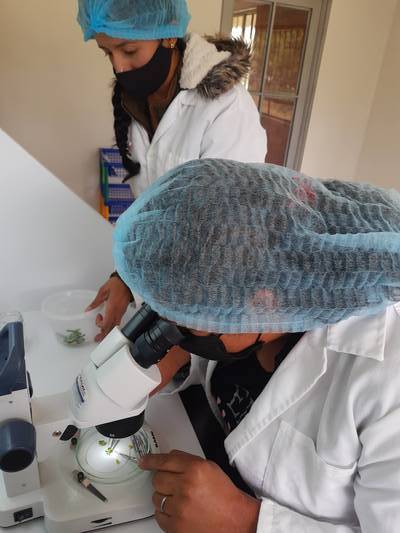In potato cultivation, plant biotechnology, through the in vitro cultivation of tissues, allows to grow small explants in controlled environments, as a result, plants with good genetic and phytosanitary quality are obtained.

In vitro tissue culture is a method that has some advantages over conventional methods of propagation, including the production of pathogen-free materials, especially viruses, and it is also a very important method for germplasm conservation. Within the framework of the project "Root to Food", native potato varieties (55 varieties in Bolivia and 5 varieties in Colombia) have been introduced to the plant tissue culture laboratory, in order to multiply seed of better quality so that it will be available to small producers.
In vitro seed production is normally carried out in laboratories of research centres or private laboratories, and small farmers do not have access to it. In the model of "pilot laboratories", farmers are trained to be the technicians in charge of producing good quality seed.
In Colombia, the production of native potato seed is being carried out in the "pilot laboratory" managed by farmers trained in the use of biotechnological tools for in vitro tissue culture. This laboratory is located in the Alizal sidewalk of the municipality of Carmen de Carupa (Cundinamarca - Colombia). Currently the varieties are multiplying: Andina, Uva Mora, Chaucha, Jardinera and Manzana, which were prioritized by farmers to be multiplied in vitro.




